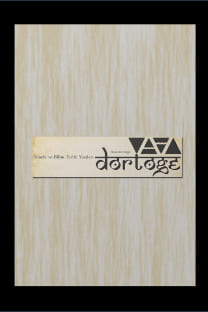Özel Mülkiyet Bağlamında Özgürlük Sorununa Bir Bakış: Locke ve Rousseau’da Köle-Efendi İlişkisi
Adalet, eşitlik, özgürlük /köle-efendi ilişkisi, özel mülkiyet, Locke, Rousseau
A Look on the Problem of Freedom in the Context of Private Property: The Slave-Master Relationship in Locke and Rousseau
Justice, equality, freedom/slave master relationship, private property, Locke, Rousseau,
___
- Berlin, I. & Hardy, H. (1991). The crooked timber of humanity (1st ed.). New York: Knopf.
- Bertram, C. (2016). Jean Jacques Rousseau. [online] Plato.stanford.edu. Available at: https:// plato.stanford.edu/entries/rousseau/ [Accessed 5 Dec. 2016].
- Dent, N. (2000). Rousseau Sözlüğü, Çev. B. Gözkan, N. Ilgıcıoğlu, 1st ed. İstanbul: Sarmal Yayınevi.
- Dun, V. (2010), ‘Freedom, Liberty, Autonomy’ Available at: http://users.ugent.be/~frvandun/ Texts/Articles/FVD_FREEDOM.PDF [Accessed 9 Oct. 2016], s.15.
- Dworkin, R. (1981). What is Equality? Part:2: Equality of Resources, Philosophy and Public Affairs, Vol. 10. No. 4. (Autumn, 1981), pp. 283-345.
- Fisher, W. (2001). Theories of Intellectual Property. In: New Essays in the Legal and Political Theory of Property, 1st ed. Cambridge, UK: Cambridge University Press. 168-199.
- Gough, J. W, and Klibansky (eds.), 1968, ‘Epistola de Tolerentia’, A Letter on Toleration, Ox- ford: Oxford University Press.
- Hayek, F. A. (1976). The Mirage of Social Justice Law, Volume 2 of Law, Legislation and Liberty, London: Routledge and Kegan Paul.
- Larmore, C. (1996). The Morals of Modernity, Cambridge: Cambridge University Press.
- Locke, J. (2016). Yönetim Üzerine İkinci İnceleme, Çev. Fahri Bakırcı, Ankara: Eski Kitaplar.
- Munzer, S. (1990). A theory of property. 1st ed. Cambridge: Cambridge University Press.
- Nussbaum, M. and Faralli, C. (2007). On the New Frontiers of Justice. A Dialogue. Ratio Juris, 20(2), ss.145-161. s.151.
- Paschal,. (1868). Constitution of the United States Defined and Carefully Annotated (1st ed.).
- Rawls, J. (1993). Political liberalism (1st ed.). New York: Columbia University Press.
- Rousseau, J. (2016). Bilimler ve Sanatlar Üstüne Söylev, Çev. Sabahattin Eyüboğlu, İstanbul: Türkiye İş Bankası Yayınları.
- Rousseau, J. (1948). Emile. 1st ed. London: Dent.
- Rousseau, J. (2015). İnsanlar Arasındaki Eşitsizliğin Kaynağı, Çev. Rasih Nuri İleri, İstanbul: Say Yayınları
- Rousseau, J. (2015). Toplum Sözleşmesi, Çev. İsmail Yerguz, İstanbul: Say Yayınları
- Schmidtz, D. (2016). Friedrich Hayek. Plato.stanford.edu. Retrieved 14 December 2016, from https://plato.stanford.edu/entries/friedrich-hayek/
- Tully, J. (2009). Discourse on Property (1st ed.). Cambridge, GBR: Cambridge University Press.
- Uzgalis, W. (2016). John Locke. [online] Plato.stanford.edu. Available at: https://plato.stan- ford.edu/entries/locke/#Bib [Accessed 12 Oct. 2016].
- Waldron, J. (2002). God, Locke, and equality. 1st ed. Cambridge: Cambridge University Press.
- Waldron, J. (2010). Property Law. In: A Companion to Philosophy of Law and Legal Theory, 1st ed. Malden, MA: Blackwell Pub., 9-29.
- Waldron, J. (2010). Locke, Tully ve Mülkiyetin Düzenlenişi, Çev. Hamdi Bravo, FLSF, Bahar Sayı 9
- Waluchow, W. (2016). Constitutionalism. [online] Plato.stanford.edu. Available at: https://plato. stanford.edu/entries/constitutionalism/#ConMinRicSen [Accessed 10 Dec. 2016].
- ISSN: 2146-7064
- Yayın Aralığı: Yılda 2 Sayı
- Başlangıç: 2012
- Yayıncı: Nobel Akademik Yayıncılık
Kahkaha Toplumdan Yana: Henri Bergson’un Gülme Yorumu
Henri Bergsonun Gülme YORUMU, Fatma ERKEK
Kahkaha Toplumdan Yana: Henri Bergson’un Gülme Yorumu
Henri Bergsonun Gülme YORUMU, Fatma ERKEK
Geçmişten Günümüze Yaygın Eğitimde Singer Dikiş Kursları Aracılığıyla Kadın Halk Eğitimi
Ebû Abdullah el-Hârizmî ve Mefâtîhu’l-’Ulûm Adlı Ansiklopedik Eseri Üzerine Birkaç Söz
Henri Bergson’un Şuurun Doğrudan Doğruya Verileri Adlı Eserinde Özgürlük Kavramının Değerlendirilişi
2009 Felsefe Öğretim Programının Program Geliştirmenin Temel Öğeleri Kapsamında Değerlendirilmesi
Deniz Kundakçı Say YAYINLARININ, Max WEBER, Feyza Şule GÜNGÖR
